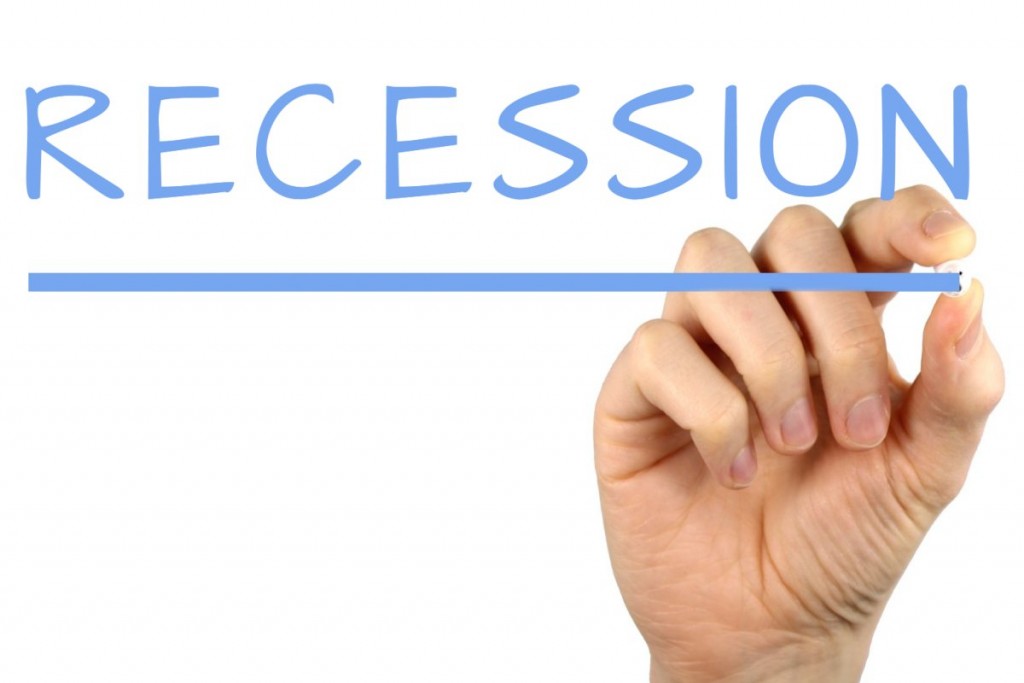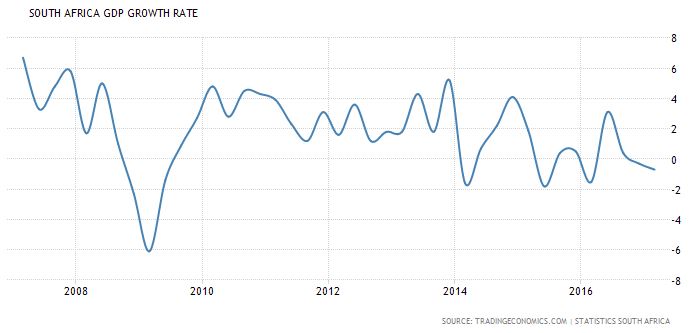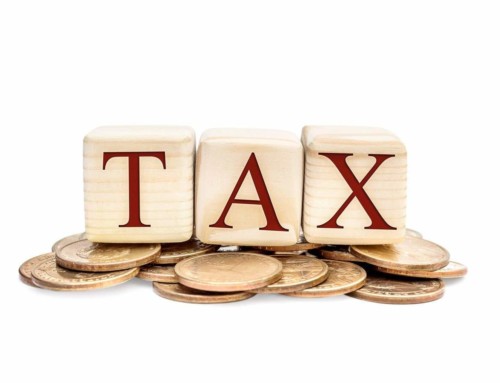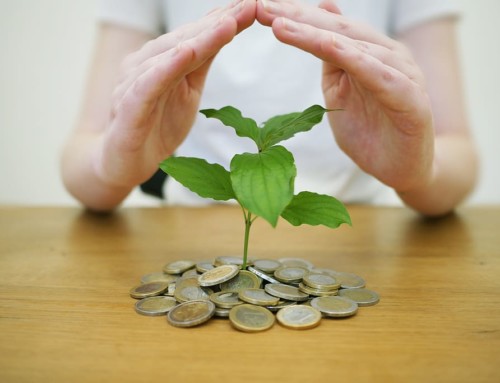Stats SA announced South Africa’s Gross Domestic Product figures last week, and to the surprise of many – we are officially in recessionary territory. As a reminder for those not au fait with the term: A Recession “happens” when a country experiences two consecutive quarters of negative economic growth. That’s quite a mouthful: let’s back that up and explain each part:
Economic Growth:
Our economic growth is measured, and published on a quarterly basis by Stats SA. Gross Domestic Product (or GDP), is measured on a real, seasonally adjusted and annualized basis. That means the calculation is done by taking into account the effect of inflation, smoothing the impact of seasonal fluctuations (think agriculture and mining cycles) and assuming that the next three quarters will exhibit similar growth characteristics.
The quarterly published figures for the last 10 years can be seen in the graph below:
Gross Domestic Product:
The GDP of a country aims to determine the goods produced within the borders of a country over a specific period. The crux of this calculation comes down to:
- expenditure by households
- + investment by companies and governments in goods that are not consumed nor exported
- + expenditure by government on goods and services made available to individuals
- + Exports of goods and services
- – Imports of goods and services
So if a GDP print number is negative, it effectively means that a country has produced less output in the latest quarter, compared to the previous quarter.
Does this mean that we are doomed?
Absolutely not. Recessions are a normal part of the Boom and Bust cycle of economies. As much as our glorious own-goals (think government policy) have resulted in this recession – much of the continued low growth environment has come off the back of:
- Tough global economic conditions;
- One of our worst droughts on record (although the recovery signs are encouraging); and
- Low global commodity Prices
The impact of a recession
Generally, in a recessionary environment businesses find it harder to gain access to credit. Consumers are less willing to spend the little disposable income that they have, and often those who have jobs become more uncertain around their employment prospects.
What can you do?
- As always, we recommend sticking to prudent financial budgeting.
- Do not bargain on that increase this year, treat it as a bonus when it happens.
- Ensure that you always keep educating and upskilling yourself. This should increase your employability in a tough job market environment.
- Be mindful of your debt levels, and pay-off high interest rate debt as a priority. Increasing monthly cash flow after settling toxic debt is a great way to boost your financial morale!
- Stick to your plan. External shocks will always be around. This is not the first time we are in a recession, and certainly not the last – a well diversified portfolio will ensure that you can weather most economic news storms.
- Take a long term view on your investments
At the end of the day, emotional and financial stress management comes down to controlling the things you can – and risk managing the things you cannot. This too shall pass.
If you are worried about not achieving your financial objectives in these tough times, why not give us a shout?







